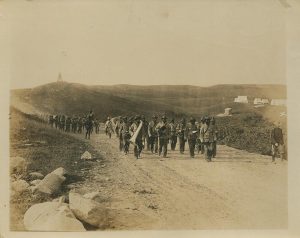
It was August 1898 when Camp Wikoff opened to what quickly grew to be more than 20,000 sickened, injured, and weakened soldiers returning from the Spanish-American War.
A hastily created patchwork of tents and infirmaries blanketed virtually all of Montauk, from Fort Pond Bay to Ditch Plains to Third House. It was intended to quarantine the soldiers and help them recover, although about 300 souls were buried before the camp closed only three months later (the bodies were later exhumed and buried elsewhere).
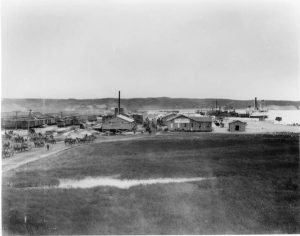
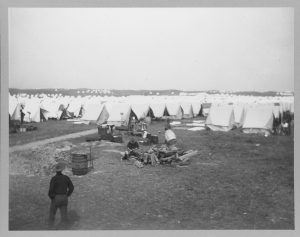
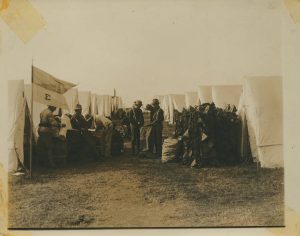
Among the troops were Buffalo Soldiers, Black cavalrymen less celebrated, then and now, than the White Rough Riders led by Teddy Roosevelt who also recuperated or died at the camp.
Like the Rough Riders, the Buffalo Soldiers – the first African-American troops in the history of the Regular United States Army – had just weeks before seen casualties, but also victory at San Juan Hill in Cuba. The site of a heavily fought and decisive battle, San Juan Hill eventually helped the glory-seeking Colonel Roosevelt rise to the presidency.
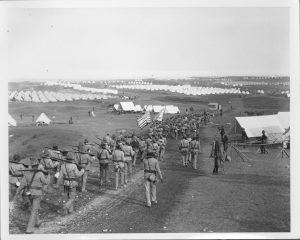
Before they served in that war, the Buffalo Soldiers had fought in “the Indian Wars” – the quest to expel Native Americans from their land in the West, whether by brutal warfare under harsh conditions or by safeguarding the property of mostly White settlers: stagecoaches, the mail, cattle, and the like. Many Buffalo Soldiers were Civil War veterans who had not been welcomed in the East when their service to the Union, as well as slavery, came to an end.
Ironically, it may have been the Native Americans who gave the Buffalo Soldiers their name. Formidable opponents yet, sadly, also de facto oppressors, the Black cavalrymen who defeated the Native Americans nevertheless earned their respect. In battle they demonstrated the qualities of the buffalo, an animal revered for its bravery. Admired and valued by Native Americans, the buffalo, with its distinctive fur, may have contributed to the Buffalo Soldier appellation.
The Buffalo Soldiers were proud, as well. Before desegregation ended separate regiments for African-Americans starting in 1948, Buffalo Soldiers went on to become the nation’s first park rangers and to serve in military conflicts. They are said to have had the lowest desertion and court-martial rates of their time, and many won Congressional Medals of Honor in recognition of their valor and sense of duty.
Camp Wikoff was officially closed on October 28, 1898, although the last infantry, which was the 7th, had already left Montauk on October 9.
Buffalo Soldier, lyrics by Bob Marley and Noel Williams:
I’m just a Buffalo Soldier
In the heart of America
Stolen from Africa, brought to America
Said he was fighting on arrival
Fighting for survival
Said he was a Buffalo Soldier
Win the war for America
Stolen from Africa, brought to America
Said he was fighting on arrival
Fighting for survival
Said he was a Buffalo Soldier
Win the war for America
*This post, which has been slightly revised, originally ran on August 24, 2021.

Reply or Comment